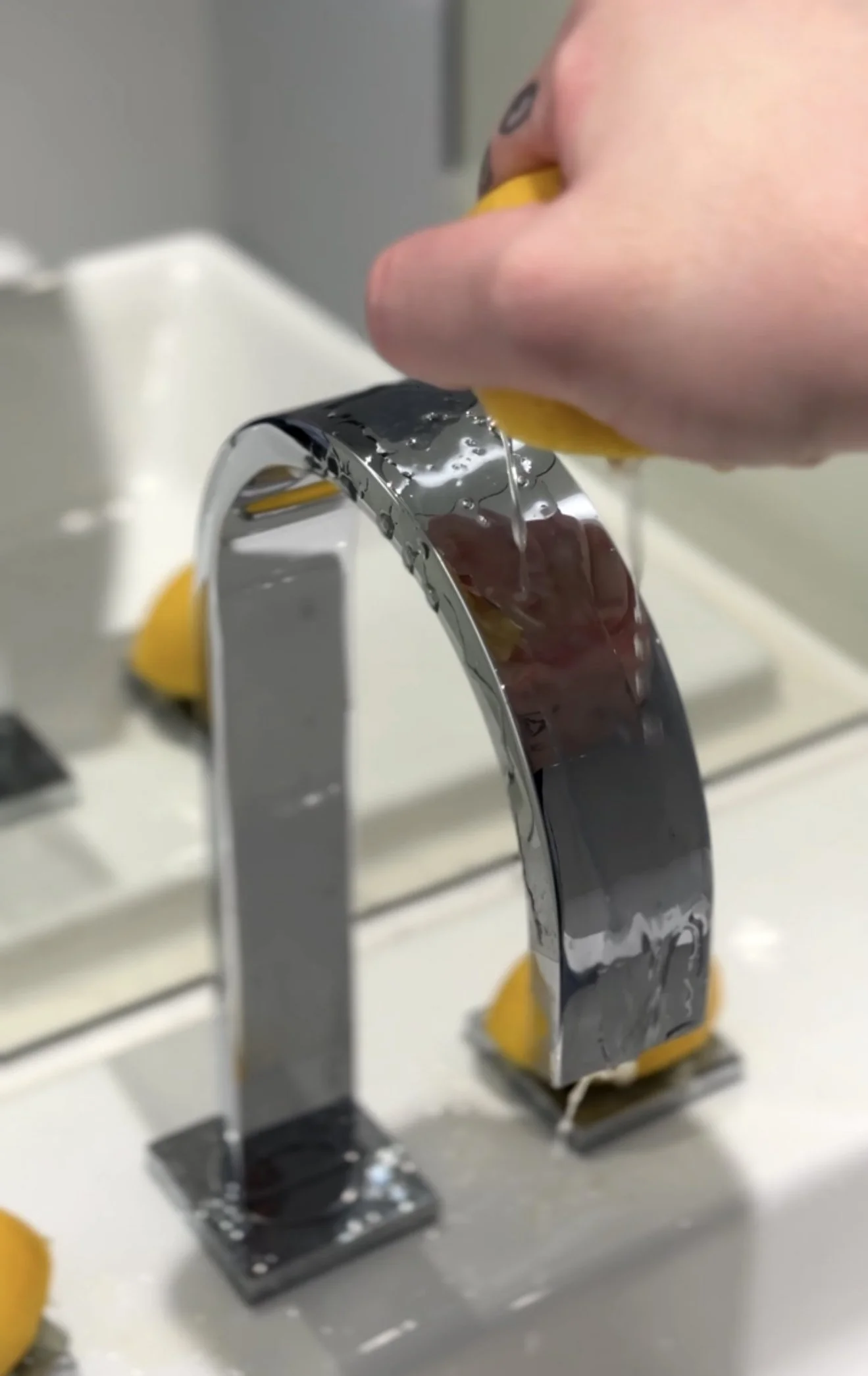How To Clean with Lemons
When life gives you lemons, you clean!
Who knew lemons were such a versatile cleaner? They’re a great natural alternative to harsh chemical cleaners, but how does it work?
The citric acid is antibacterial, meaning it can kill bacteria, while the oil within the lemon peel can help to cut through tough grease and grime, leaving your home looking and smelling fresh.
So, what can we use it for? Well let me tell you!
The Perfect Rinse Aid
Lemon juice is one of the best rinse aids out there! Simply squeeze the juice of half a lemon into your dishwasher (careful of the seeds, you don’t want them getting stuck in the filter) and start a cleaning cycle. Voila, your tableware will come out sparkling.
Unwanted Microwaves Odours
I show this cleaning hack a lot in my videos and get so many questions asking what it actually does.
Our microwaves go through a lot and can harbour some very unpleasant odours. So if your microwave isn’t smelling it’s Sunday best, do the following.
Pour boiling water into a Pyrex bowl or jug, slice and squeeze the juice of half a lemon, and place in the water. Put it into the microwave for 3 minutes, or longer if desired, then remove and wipe the inside with a cloth. The combination of steam and oil helps break down grease and grime whilst leaving behind a subtle lemon scent!
Natural Descaler
London, like the majority of the south, contend with hard water, resulting in a lot of limescale build up. Hard water is water containing a high mineral content, mainly calcium and magnesium. It’s these minerals that cause deposits of limescale to form, which reek havoc on our pipes and appliances.
But what’s the science behind using lemons? Lemon juice (citric acid) effectively dissolves and neutralises limescale (alkaline).
Kettle: To keep on top of limescale build-up in your kettle, pop a few used lemon halves into a half filed kettle and boil. After, leave the contents in the kettle overnight and let that citric acid work its magic. Boil again in the morning before emptying it, and rinse.
*Note: Make sure to rinse out and boil the kettle a few times to remove any leftover limescale. You don’t want any limescale bits in your morning brew…
Taps: For taps (or even drain plugs or shower heads) squeeze and rub the juice of half a lemon on the affected area. For tougher more stubborn cases, squeeze the juice onto kitchen roll or cotton pads and place on the tap itself. Leave for 10 minutes (check and leave for a further 10 minutes if it’s a stubborn deposit) before thoroughly rinsing with water and wipe down with a microfibre cloth. You should be left with shiny chrome faucets!
Clean Mirrors & Glass
Looking for streak free glass and mirrors? We’ve got you covered! Grab a spray bottle and fill it with equal measures of water and white vinegar. Squeeze the juice of half a lemon into the spray bottle and shake. Spray the cleaning area before wiping off with a microfibre cloth. Don’t worry about the vinegar smell, your home will still be smelling zesty.
Sink Scrub
Lemon and bicarb: the bestest cleaning buddies! If you want your sink gleaming in a jiffy, all you need are these two ingredients. Cut a lemon in half and pour bicarb onto the lemon. Squeeze to release the juices, and simply start scrubbing! The juices will react with the bicarb lifting any grease, grime, and limescale. Not only will it leave your sink sparkling but it’ll help eliminate any stinky odours coming from the drain.
*Note: Don’t be too heavy-handed as it is an abrasive.
With all these helpful cleaning hacks you’ll be able to clean your home easy peasy lemon squeezy! So, give it a try!
Check out my lemon cleaning hack video here.
P.S. If you have any lemons left over, why not treat yourself and make a cheeky Limoncello Spritz or G&T as a well deserved Sip.






